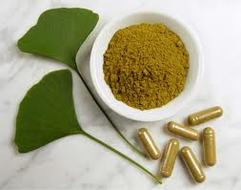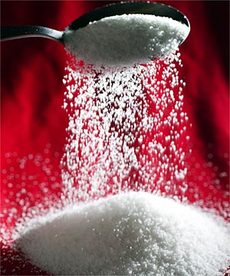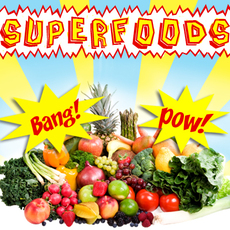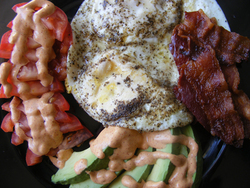Challenges
The idea of the challenges are to get you to slowly add or supplement healthier habits into your lifestyle. These easy additions can be very challenging when trying to do them all at one time, but one or a couple at a time may not be as hard. The difficulty level depends on the individual.That's why I've created challenges that ask people to implement new habits into their lives for a week. Hopefully, the habits sticks.
Supplement challenge

Most of your nutrients come from your diet. You can get most of what you need in your nutrient rich food. This was the point of the "superfood" challenge. The idea was to get everyone to add good protein, vegetables, and healthy fats to every meal.
There are times when we don't get everything we want. This can be due to the lack of time, haven't been to the store, working out and you need the extra aid.
You don't need to get or take everything suggested. Do what you feel comfortable with. Again, like every other challenge, it's about adding something small to help you change your bad habits in small amounts until you've made a big difference in your health.
1. Fish Oil (krill oil)
Fish oil is known for delivering omega-3’s, essential fats that our bodies can’t make on our own so must get them from our diet. Even if you eat fish one to two times per week, you won’t be taking in enough omega-3’s to meet your body’s needs. By taking a high quality fish oil, you can reduce triglycerides, lower your risk of heart disease, improve recovery from exercise, protect your brain health, and potentially lower your risk of diabetes. Omega-3’s may even help with losing body fat. When choosing a supplement, pay seek brands that deliver a minimum of 2g EPA and DHA (two of the three acids in omega-3s) daily.
2. Vitamin D
Plenty of data has suggested that the majority of Americans have less than optimal levels of Vitamin D. That’s not surprising – the nutrient is tough to get from food (though canned salmon, milk, and sardines are all good sources), and the only other method is sunlight. If you live north of Atlanta, the sun isn’t strong enough from November to March for you to make sufficient amounts. And even when you are outside, most people are covered with clothing and/or suntan lotion. Most experts agree that supplementing with at least 1000 IU’s daily is a good start.
3. Whey Protein
Whey protein is not an essential supplement, but it is a good one to have on hand. Because whey is high in branched-chain amino acids, it can aid recovery from exercise. More importantly, whey protein is a quick, convenient source of quality calories. Add some to fruit or a scoop of nut butter and you’ve got a perfect on-the-go meal that takes 60 seconds to make. If you're going to take in a protein before bed, during that long time sleeping, you may want to consider Casein protein that breaks down much slower.
4. Greens Products
While not a replacement for fruits and vegetables, Greens products (fruit and vegetable concentrates) are a good “insurance” policy if your produce consumption is lower than idea. Less than 6% of men and 9% of women aged 5 to 34 consume the recommended minimum of five servings of fruits and vegetables each day. Greens can help fill this void. They’re especially handy when real produce is hard to come by, like during times of heavy travel.
5. Probiotics
Here’s the deal -- there are millions of different strains of bacteria in our guts. Some are good. Others, not so much. The bacteria in your gut can influence your overall health, digestion and immune system. Probiotics can help replenish and nourish your internal supply of good bacteria, sometimes leading to less gas, bloating, and abdominal pain. Aim for a product from a trusted brand that lists at least 3 billion organisms per serving. Keep it refrigerated after opening to protect those organisms. Yogurts are a great source of probiotics.
6. Turmeric (Curcumin)
Turmeric is a spice commonly used in Indian dishes, and a key component in the spice is curcumin. Hundreds have studies have suggested that curcumin possesses a wide range of beneficial health properties, including a 2010 study that suggested curcumin has anti cancer, anti viral, anti arthritic and anti inflammatory properties. The nutrient’s very strong anti inflammatory actions are seen as one of the primary drivers of these benefits. You could just add turmeric to your foods if you enjoy that flavor, or seek a curcumin supplement that delivers around 500 mg daily.
7. Cinnamon
Another powerful spice, cinnamon has one of the highest antioxidant levels of any of the spices. Several studies have shown that cinnamon may improve insulin sensitivity, which improves utilization of carbohydrates and leads to better blood sugar control. Sprinkle it in shakes, on oats, yogurt, cottage cheese or wherever you’d enjoy the added flavor. Or if you want the assurance of getting a specific dose, you can choose a supplement. Studies have shown that 1g daily (about 1/2 teaspoon) is sufficient. Note: Cinnamon comes in two varieties -- Ceylon and cassia cinnamon – and most benefits have been linked to the cassia variety. Another note: If you have blood sugar issues, exercise caution if combining cinnamon with other diabetes drugs or supplements for blood sugar control.
8. Psyillium
Psyillium is a soluble fiber that can help lower cholesterol, regulate blood sugar in people who have diabetes, and help “move things along” if you’re a bit backed up. If you choose to supplement, start with small doses and build over time. Adding too much fiber too soon can cause some, ahem, odorous side effects.
9. Creatine (Kre-Alkalyn)
This one has stood the test of time. Creatine is one of the most extensively studied nutritional supplements, both in clinical research and by real-life athletes, and to date most findings indicate one thing: Creatine works. The supplement may enhance muscle function during high-intensity exercise, and cause muscle hypertrophy, likely due to increased water retention by muscle cells, although some data suggest there may be gains in muscle fiber diameter as well. Vegetarians may have a greater response to supplementation because of their limited intake of dietary creatine. While some advocate creatine loading, it isn’t necessary. Adding 3-5g per day can help improve strength or speed, or help you add on weight.
10. Beta Alanine
β-Alanine supplements have garnered interest over the last several years as several research investigations have linked its use to performance improvements. β- Alanine is the ‘beta’ form of the amino acid alanine, which muscle cells use to form carnosine. Carnosine is one of the more effective buffering agents in skeletal muscle, meaning that during high-intensity activity it helps stave off some of the things that slow you down.
There are times when we don't get everything we want. This can be due to the lack of time, haven't been to the store, working out and you need the extra aid.
You don't need to get or take everything suggested. Do what you feel comfortable with. Again, like every other challenge, it's about adding something small to help you change your bad habits in small amounts until you've made a big difference in your health.
1. Fish Oil (krill oil)
Fish oil is known for delivering omega-3’s, essential fats that our bodies can’t make on our own so must get them from our diet. Even if you eat fish one to two times per week, you won’t be taking in enough omega-3’s to meet your body’s needs. By taking a high quality fish oil, you can reduce triglycerides, lower your risk of heart disease, improve recovery from exercise, protect your brain health, and potentially lower your risk of diabetes. Omega-3’s may even help with losing body fat. When choosing a supplement, pay seek brands that deliver a minimum of 2g EPA and DHA (two of the three acids in omega-3s) daily.
2. Vitamin D
Plenty of data has suggested that the majority of Americans have less than optimal levels of Vitamin D. That’s not surprising – the nutrient is tough to get from food (though canned salmon, milk, and sardines are all good sources), and the only other method is sunlight. If you live north of Atlanta, the sun isn’t strong enough from November to March for you to make sufficient amounts. And even when you are outside, most people are covered with clothing and/or suntan lotion. Most experts agree that supplementing with at least 1000 IU’s daily is a good start.
3. Whey Protein
Whey protein is not an essential supplement, but it is a good one to have on hand. Because whey is high in branched-chain amino acids, it can aid recovery from exercise. More importantly, whey protein is a quick, convenient source of quality calories. Add some to fruit or a scoop of nut butter and you’ve got a perfect on-the-go meal that takes 60 seconds to make. If you're going to take in a protein before bed, during that long time sleeping, you may want to consider Casein protein that breaks down much slower.
4. Greens Products
While not a replacement for fruits and vegetables, Greens products (fruit and vegetable concentrates) are a good “insurance” policy if your produce consumption is lower than idea. Less than 6% of men and 9% of women aged 5 to 34 consume the recommended minimum of five servings of fruits and vegetables each day. Greens can help fill this void. They’re especially handy when real produce is hard to come by, like during times of heavy travel.
5. Probiotics
Here’s the deal -- there are millions of different strains of bacteria in our guts. Some are good. Others, not so much. The bacteria in your gut can influence your overall health, digestion and immune system. Probiotics can help replenish and nourish your internal supply of good bacteria, sometimes leading to less gas, bloating, and abdominal pain. Aim for a product from a trusted brand that lists at least 3 billion organisms per serving. Keep it refrigerated after opening to protect those organisms. Yogurts are a great source of probiotics.
6. Turmeric (Curcumin)
Turmeric is a spice commonly used in Indian dishes, and a key component in the spice is curcumin. Hundreds have studies have suggested that curcumin possesses a wide range of beneficial health properties, including a 2010 study that suggested curcumin has anti cancer, anti viral, anti arthritic and anti inflammatory properties. The nutrient’s very strong anti inflammatory actions are seen as one of the primary drivers of these benefits. You could just add turmeric to your foods if you enjoy that flavor, or seek a curcumin supplement that delivers around 500 mg daily.
7. Cinnamon
Another powerful spice, cinnamon has one of the highest antioxidant levels of any of the spices. Several studies have shown that cinnamon may improve insulin sensitivity, which improves utilization of carbohydrates and leads to better blood sugar control. Sprinkle it in shakes, on oats, yogurt, cottage cheese or wherever you’d enjoy the added flavor. Or if you want the assurance of getting a specific dose, you can choose a supplement. Studies have shown that 1g daily (about 1/2 teaspoon) is sufficient. Note: Cinnamon comes in two varieties -- Ceylon and cassia cinnamon – and most benefits have been linked to the cassia variety. Another note: If you have blood sugar issues, exercise caution if combining cinnamon with other diabetes drugs or supplements for blood sugar control.
8. Psyillium
Psyillium is a soluble fiber that can help lower cholesterol, regulate blood sugar in people who have diabetes, and help “move things along” if you’re a bit backed up. If you choose to supplement, start with small doses and build over time. Adding too much fiber too soon can cause some, ahem, odorous side effects.
9. Creatine (Kre-Alkalyn)
This one has stood the test of time. Creatine is one of the most extensively studied nutritional supplements, both in clinical research and by real-life athletes, and to date most findings indicate one thing: Creatine works. The supplement may enhance muscle function during high-intensity exercise, and cause muscle hypertrophy, likely due to increased water retention by muscle cells, although some data suggest there may be gains in muscle fiber diameter as well. Vegetarians may have a greater response to supplementation because of their limited intake of dietary creatine. While some advocate creatine loading, it isn’t necessary. Adding 3-5g per day can help improve strength or speed, or help you add on weight.
10. Beta Alanine
β-Alanine supplements have garnered interest over the last several years as several research investigations have linked its use to performance improvements. β- Alanine is the ‘beta’ form of the amino acid alanine, which muscle cells use to form carnosine. Carnosine is one of the more effective buffering agents in skeletal muscle, meaning that during high-intensity activity it helps stave off some of the things that slow you down.










